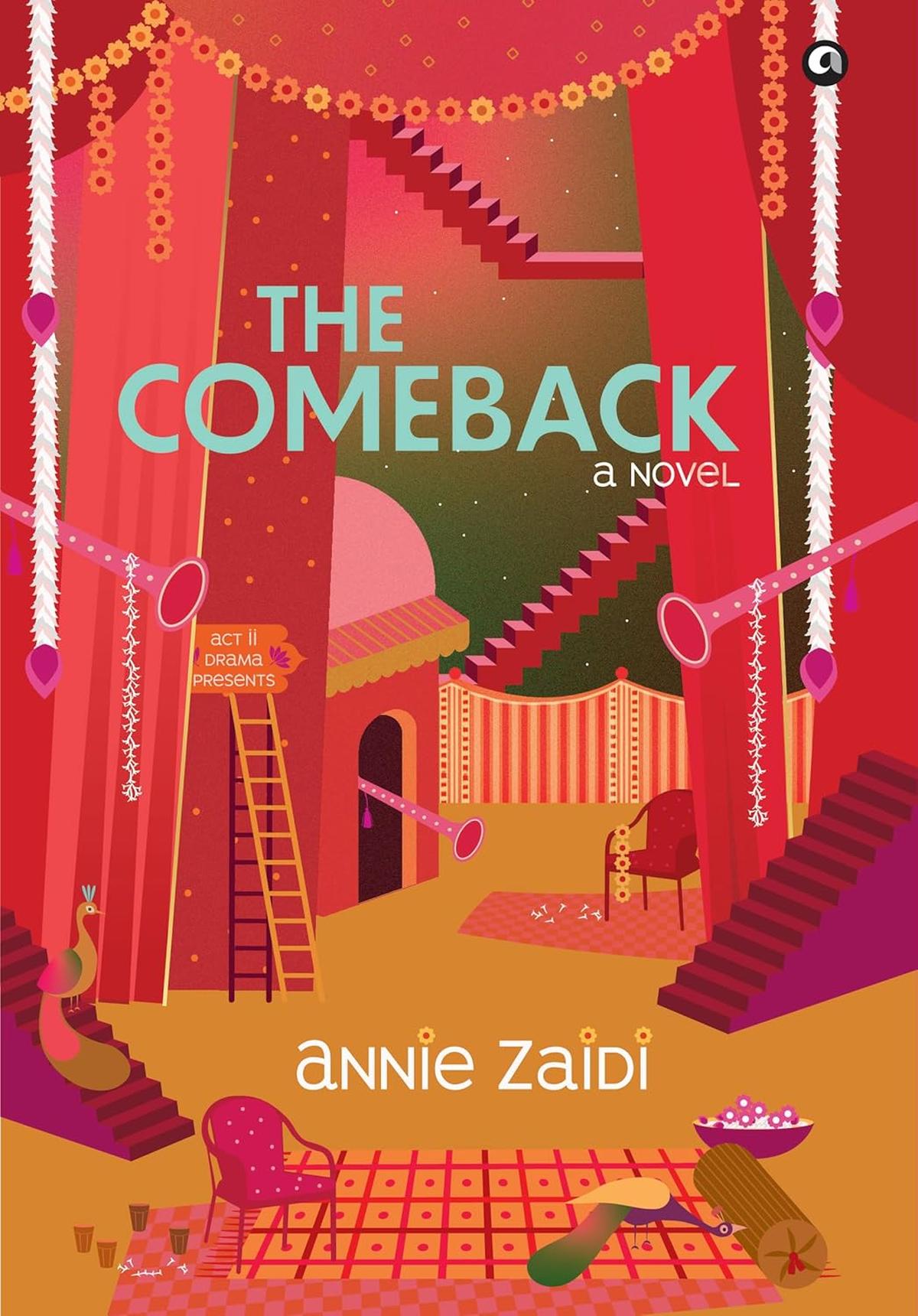Many novelists have explored the interplay between the performing arts and life to illuminate their themes. A recent example that comes to mind is Irish author Anne Enright’s 2020 novel Actress, which is set against the world of theatre and film and delves into a fraught mother-daughter relationship. Annie Zaidi’s The Comeback uses the same world to explore ideas of friendship and self-realisation.
The narrator of Zaidi’s novel is an actor who has changed his name from Jaun Kazim to John K. to gain wider acceptance, a decision that reflects his self-interested approach to navigating the world. After years of auditioning for meaty roles in Mumbai, he strikes gold when a producer listens to his narration of an audiobook and selects him for the central role in the film version.

John is from the town of Baansa, located “north of Lucknow but south of Bareilly”. It was while he was in college here that he was bitten by the acting bug, and his talent was spotted and shaped by Asghar, a close friend and theatre group leader. “His was the hand that had picked up a rock”, John acknowledges, “and polished it into a gemstone”.
Now, however, John is on the cusp of success while Asghar works as a bank employee. After an ill-judged interview with a film publication in which the actor reveals details of their misdemeanours during a college exam, Asghar is fired from his job, much to John’s chagrin.
Asghar retreats to his mother’s house in Baansa with his wife and children to lick his wounds and plan for his future. Holding John responsible for his fate, he refuses to return calls and messages. The rift between the friends grows by the day, even as John devotes himself to signing contracts and “making the most of my moment”.
This, then, is the slim novel’s central predicament, related in a manner that is both economical and absorbing. It contains more than a few touches of broad irony, especially when it comes to the business of art and the way eastern and western dramatic traditions are appropriated by the cognoscenti.
In his late 30s, and with his career now on the skids, John becomes obsessed with finding out what Asghar is up to. When he learns that his old friend is returning to the stage, it feels like “a needle-stab in my heart”. Consumed by envy, he tries his best to be cast in the upcoming production.

Author Annie Zaidi
Coming to terms with the past
The Comeback could well have restricted itself to an insular world in front of the arc lights, but Zaidi adroitly widens the lens to bring in other relationships. She traces John’s shifting bonds with, among others, his ex-wife, his own and Asghar’s family, and a former potential love interest. He also contacts earlier members of his theatre group, one of whom serves as his ears and eyes in discovering Asghar’s next steps. In passing, this leads to a serviceable feint in which the first-person narrative briefly shifts to deal with Asghar’s concerns and dilemmas.
In Prayaag Akbar’s Mother India (2024), a character’s actions leading to guilt and awareness unfold against the backdrop of right-wing social media posts. In The Comeback, social media, particularly Instagram, becomes a vehicle for John to orchestrate his return and make amends, albeit in a characteristically self-serving manner.
In the process, he probes “the twisted innards of honesty” to move towards a redemption of sorts. That means coming to terms with the impact of past actions and dealing with the way his narcissism has hampered relationships. “I might be selfish, an ambitious fool, and a liar, even a coward”, he thinks, “but I do have one good quality: a strong sense of self-preservation”.
‘What’s your soul worth?’ reads a poster tagline for one of the theatre productions delineated in The Comeback. By teasing out the possible answers to this question, the novel suggests that the path towards greater understanding may not be straightforward, but it’s ultimately worth the effort.
The reviewer is a Mumbai-based writer.
The Comeback
Annie Zaidi
Aleph
₹599
Published – April 11, 2025 09:15 am IST























